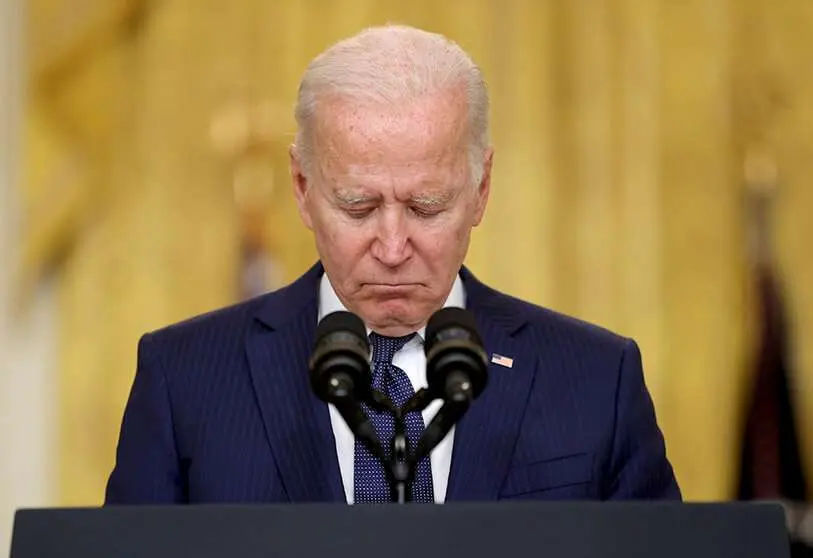Democracy's Achilles heel

Not infrequently, journalistic analyses of government action in democratic countries abstract from the weight of public opinion in the decision-making processes of political leaders. Although this omission facilitates the elaboration of Manichean narratives, which in the end foster a climate of polarity that boosts audience ratings, it does little to clarify reality. A glaring example of this can be seen in the Taliban's reconquest of Afghanistan, which both insiders and outsiders have insisted on framing in a conjunctural and partisan way, both in Washington and in Madrid and London, but this time without the Azores as a backdrop.
The problem with these epidermal and hasty analyses is that they ignore the underlying dynamics behind such serious decisions as the West's withdrawal from Afghanistan, without an understanding of which our democracies are weakened in the face of clashes of civilisations past and present. Because there are clashes of civilisations, whatever Moratinos and Zapatero may think.
I am convinced that it is more useful to interpret the Afghan panic not as an event, but as a process, which in American society was set in motion shortly after the repeal of the strict and absolute ban on the dissemination of military information, which had been in force in all wars prior to Vietnam. Unlike Europeans, Americans did not experience the immeasurable devastation of the world wars in the flesh, beyond the heroic and aseptic mythology produced by official newsreels and Hollywood war movies. All this changed with the Vietnam War, which coincided with the coming of age of television, available in every American home on a motley plethora of channels.
The first televised war brought the battlefront and flag-draped coffins into American homes, suddenly providing a realistic view of war that caused a popular backlash that made it politically unfeasible to sustain the war effort. Whereas in World War II the terror bombings that turned hundreds of thousands of German and Japanese civilians into human torches were only known - partially - years later, in Vietnam the effects of Napalm on the civilian population were broadcast live to a stunned audience that suddenly lost its innocence.
War was never the same again for the democracies. Despite the Pentagon's strenuous efforts to virtualise the image of war that were launched in Kosovo and the first Iraq war, which eventually succeeded in creating the fiction that war was a virtual spectacle; and despite the overwhelming support of the American people for the second after 9/11, the lessons of the influence that war pornography had on voters during the Vietnam War were not lost on America's enemies, who were able to create media dynamics based on manipulating both public opinion and industrialising the media with staged horror, which reached a paroxysm after the fall of Baghdad and became a visual sub-genre with the rise of ISIS, which at the same time filled the cup of violence jadedness, something to which the own goals scored at Abu Gurayb and Guantánamo Bay contributed in no small measure.
Trump, even better than Obama, knew how to read this popular sentiment perfectly, his electoral triumph being incomprehensible without factoring in the majority's weariness with interventions as futile as they are bloody in Libya, Syria and, of course, Afghanistan.
To all this must be added the fact that American society is no longer a homogeneous community, creating new demographic - and therefore political - realities that have never been seen before. Thus, credible projections suggest that by 2040, Muslim Americans will replace Jews as the second largest religious group after Christians. In other words, the umma has a voice and a vote in the United States, and therefore a real and direct ability to influence US foreign policy.
Naturally, this is a problem that does not concern tyrannies, immune to media sensationalism, since they have totalitarian control of public opinion. Therefore, and European sentiment being even more averse to war than American, the quagmire facing Western democracies consists not in determining who occupies the White House, Moncloa or Downing Street, but in deciding under what conditions recourse to war is justifiable in the sense of St. Thomas Aquinas; what methods of waging war are acceptable; and what price free societies are willing to pay for pursuing politics by other means, when this is the only reasonable option.

